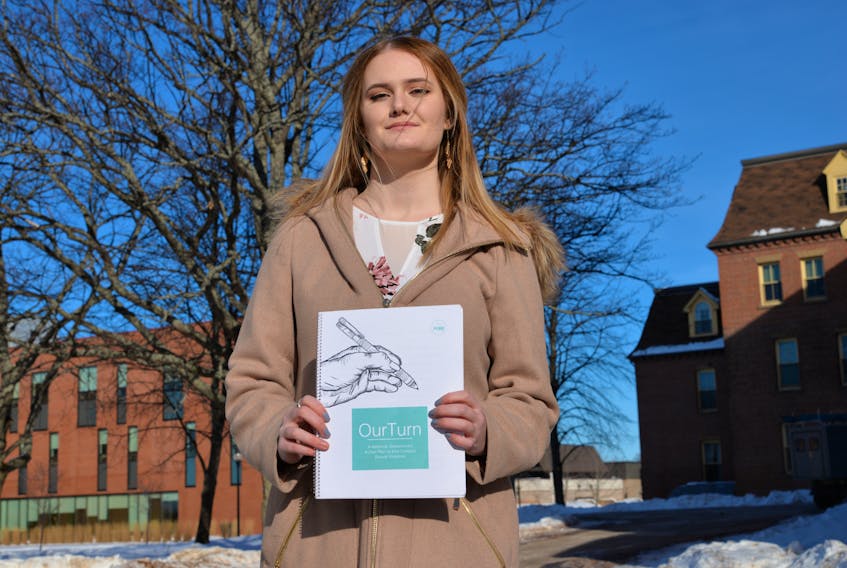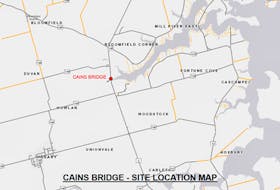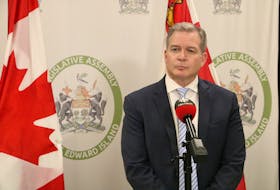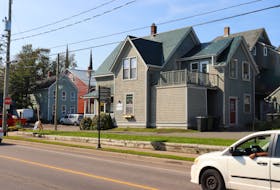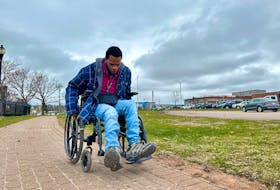SUMMERSIDE – A Summerside woman wants to make a difference when it comes to sexual victimization on post-secondary campuses.
Paxton Caseley, a UPEI Political Science major, recently participated in a national meeting in Ottawa to discuss topics of sexual victimization and sexual violence.
“The meeting I attended on January 19 was an engagement session with Statistics Canada and the Status of Women Canada on the topic of sexual victimization on post-secondary campuses. Stakeholders from across Canada attended to discuss the issue of sexual violence and the type of questions that need to be asked in order to accurately collect data on sexual violence in Canadian postsecondary institutions.”
The Summerside native defines sexual victimization as an umbrella term about sexually violent acts including sexual assault, harassment, stalking, indecent exposure, voyeurism and stealthing (the non-consensual removal of a condom during sex).
“The engagement session was specifically about sexual violence on postsecondary campuses. Having been a student at two Atlantic universities, I was able to offer my perspective as a member of the target demographic but as well speak to specific challenges faced in the Atlantic region.
“As a result of the session, I have an increased knowledge of sexual violence policy development. Additionally I had the opportunity to speak with many people who were able to offer new perspectives and ideas to our efforts here on P.E.I.”
She says discussions about these incidences are very necessary.
“It is important to collect this data and feedback so we can accurately see the prevalence, conditions, and environments where sexual violence occurs most often in order to begin to take action against it and establish improved supports for survivors. But aside from data collection and asking questions, we need to have more education about sexual violence and rape culture in order to work to prevent it from happening.”
Caseley is also the chairwoman of the Our Turn UPEI Chapter. Our Turn is a national student-led movement aimed to end sexual violence on post-secondary campuses through a survivor-centric approach. It focuses on prevention, support and advocacy.
“I first got involved with Our Turn in September 2017 after seeing in a UPEISU newsletter that they were looking for people to start a chapter here on campus. Sexual violence advocacy and supporting survivors is something I’m very passionate about, so I put my name forward to apply and later became the chair of the UPEI Chapter.”
The National Our Turn organization works to support individual chapters and advocates for sexual violence policy reform at the federal level. Caseley sits on the committee as the director of mobilization and acts as the Atlantic representative.
Currently, Caseley has been working with the UPEISU vice-president academic and external, Taya Nabuurs, who is working to develop a stand-alone sexual violence policy.
“She’s doing incredible work… she continues to advocate at the provincial level for the development of legislation to address the issue of sexual violence on post-secondary campuses on P.E.I.”
Although movements to address issues surround sexual violence have been around for many years, Caseley says ongoing international conversations have contributed to proper recognition of the issues.
“I find that especially after the #MeToo movement, people are talking more about sexual violence and doing so openly. These conversations are so important because people are finally opening themselves up to listen, learn, but as well it is helping people understand that this does not have to continue.”

